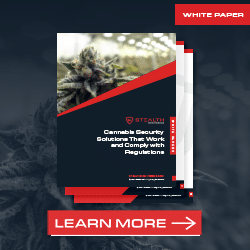Great news for the cannabis business. It’s one of the fastest-growing job markets in the U.S. as reported in Forbes. That’s not all. Leafly’s 2020 Cannabis Jobs Count
reveals that the industry is responsible for almost 250,000 full-time jobs in America!
That’s huge considering that cannabis is still not legal in many states. When you take out the states where it’s legal for medicinal use with limited THC content, and the list of states with legalized cannabis grows short. Leafly has found that during a down year, the cannabis industry still managed to add more than 30,000 jobs and 15 percent growth.
The 10-year job growth in legal cannabis has reached 250 percent! It far surpasses solar installer job growth of 63 percent. Jobs for wind turbine service techs has increased by 57 percent. Medical-related occupations went up around 30 percent.
Forbes says the industry has been asking the Bureau of Labor Statistics (BLS) to include cannabis jobs in its jobs report. Canada, on the flip side, includes the cannabis industry in Statistics Canada.
Not even the pandemic could slow down the industry as Leafly reports. On the contrary, revenues in 2020 went up by 67 percent compared to 2019. Customers bought more to stock up in anticipation of stay-home orders and to help them cope with the pandemic. Dispensaries were also able to pivot by offering online ordering and curbside pickup.
A booming industry is great news. It’s also a reminder not to become complacent. Especially in light of the fact the industry is one of the most strictly regulated. Cannabis compliance is a must as there’s no room for error. One compliance mistake and it could swallow profits whole.
The most difficult regulations to follow and implement are related to security. Anytime a cannabis company fails compliance, it’s often due to not following all the security regulations. Out of the top five causes of failing cannabis compliance, two address security.
Here’s what you need to know about cannabis compliance in security to ensure you follow your area’s compliance regulations.
Know Your Location’s Cannabis Compliance Rules
The most important thing to know is your cannabis compliance regulations. They vary based on location. America and Canada have detailed rules for cannabis security and video surveillance. The rules can also fluctuate within the countries. Marijuana businesses in Canada need to check with their province while American businesses need to check their state and municipality regulations.
To give you an idea of how this works, the municipalities of California have different requirements for video cameras. For instance, businesses in Long Beach must retain recordings for 30 days. This is not the case for businesses in El Monte. They must retain footage for 45 days. Not only that but also they need to provide the Chief of Police or a designee with remote access to the footage.
You may have to provide security outside of the property. Colorado, for example, must have video-monitored lockboxes in vehicles delivering products. To complicate things, the laws change frequently. The reason being the lawmakers do not know the consequence of a law until after it goes into effect. Once they see the problems or opportunities, they revise the law.
That makes law enforcement’s job harder. They must stay on top of all laws, not just those involving the cannabis industry. Because of this, law enforcement may not drive by cannabis businesses to check on them. They’re focused on patrolling public safety and protecting citizens. As such, they expend more effort in watching the roads for people who are driving under the influence of drugs or alcohol.
What that means for cannabis businesses is they need to look out for themselves and secure the business. In addition to complying with cannabis security standards, it’s important to verify the security is enough as it’s the biggest part of protecting your business.
How to Ensure Cannabis Compliance with Security
A good place to start is with a cannabis security plan. This applies to all cannabis businesses including cultivators, dispensaries, and manufacturers. Here’s everything you need in a dispensary security plan. Much of this applies to other cannabis businesses.
Here are four important things to increase cannabis compliance.
1. Document the security plan and procedures
The first thing you want to do before documenting a cannabis security plan is to review federal and state laws and regulations that apply to your business. Treat these like your bible. Beware the laws can be challenging to interpret. It’s invaluable to work with a lawyer and security consultant who specialize in cannabis laws.
A cannabis security plan includes the following:
- Introduction: This provides an overview of the plan, its purpose, and objectives. Identify the roles of team members who will create, maintain, and update the plan.
- Policies and procedures:
Document all the processes affecting the business including running background checks on new employees, training new employees, and controlling access management. - Physical building design:
This map provides a pictorial overview of the property including the lighting, fencing, landscaping, cameras, parking lot, and the property around the business. - Security measures:
Document security processes from product storage and customer entry to cash management and video surveillance. - Signoffs: Every employee must read the security plan and sign it. This indicates they have read it and will abide by it. This way if anything happens, they can’t claim they didn’t know. Every time the document receives an update, employees will need to read it and sign it again.
A security plan is a living document. It’s never final. Yes, you will finalize a draft, but it will undergo revisions. The cannabis industry keeps changing and so do its rules and regulations. After everyone gets in the habit of following procedures. You and your employees will find faster and more efficient ways of operating.
2. Implement video surveillance systems
While American and Canadian cannabis regulations differ, most require video surveillance services. That’s where the similarities end. They have different requirements for video resolution, camera placement, number of days to retain recordings, and more.
Your best bet is to work with a video surveillance company that has experience in the cannabis industry. Optimizing video surveillance for an office building is wholly different than it is for a cannabis business.
That’s why it’s critical the company you work with knows about cannabis compliance. When you work with the right one, you’ll gain additional advantages as video surveillance can do much more than deter internal and external threats.
Protect your business by asking the security vendor about an installation guarantee clause. This shields your business if the video surveillance setup goes wrong or fails compliance.
3. Monitor for unauthorized entrance
Everyone in the cannabis business has a job to do. They can’t be monitoring who enters and exits the property. A well-implemented video surveillance system takes the onus off employees. It’s one of the most proactive security options available. That’s because it has video and audio deterrents.
Smart video surveillance combines human and artificial intelligence. The company programs detailed scenarios into the AI. As soon as video analytics’ AI spots one of the scenarios occurring, it responds. Typically, it will notify the onsite trained monitoring operator. The person checks out the activity and takes necessary action. This may be talking to the suspect on the two-way audio or calling first-responders.
If you integrate an access control system (it may be required by law), it will help you control where employees can go and not go. For instance, cashiers may not be allowed in the grow area. Access control can be incorporated with video surveillance to reap the benefits of an integrated security system.
4. Conduct audits
Don’t wait for the government to conduct its cannabis compliance audit to determine whether your business passes. Conduct self-checks. A security specialist who specializes in cannabis compliance can help here. The cost is cheap compared to the steep fines or worse … losing your license.
The One Thing You Can Do to Ensure Cannabis Compliance
Every cannabis business needs to take steps to protect itself. Although the industry already has strict regulations, being prepared avoids the costs associated with penalties for noncompliance. It can help prevent the worst penalty of all, which is losing your license. The cannabis industry is a cash-heavy one. It requires the right security solutions that will deliver a quick ROI.
Considering cannabis security requirements fluctuate from state to state and Canadian province to province, it’s important to work with a security company with experience in cannabis. Working with them gives you a better chance of complying with cannabis law. There are just no shortcuts. This is not the time to be a company’s first cannabis industry client.
As if that’s not enough, the biggest threats to your business are already there. According to The Cannabis Business Times, the biggest threat to the cannabis business is its employees.
So, how do you find a qualified security consulting company with experience in cannabis compliance? Start by asking for client referrals and cannabis case studies. You might also want to download this free cannabis security guide. This guide looks at cannabis security in the United States and Canada.
After reading the paper, you’ll understand the keys to a comprehensive security system and how it can help a cannabis business. Ready to learn more? Contact us





